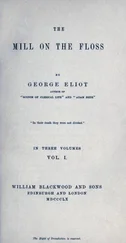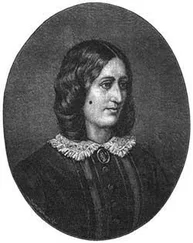Джордж Элиот - Scenes of Clerical Life
Здесь есть возможность читать онлайн «Джордж Элиот - Scenes of Clerical Life» — ознакомительный отрывок электронной книги совершенно бесплатно, а после прочтения отрывка купить полную версию. В некоторых случаях можно слушать аудио, скачать через торрент в формате fb2 и присутствует краткое содержание. Жанр: foreign_antique, Религиозная литература, foreign_religion, на английском языке. Описание произведения, (предисловие) а так же отзывы посетителей доступны на портале библиотеки ЛибКат.
- Название:Scenes of Clerical Life
- Автор:
- Жанр:
- Год:неизвестен
- ISBN:нет данных
- Рейтинг книги:5 / 5. Голосов: 1
-
Избранное:Добавить в избранное
- Отзывы:
-
Ваша оценка:
- 100
- 1
- 2
- 3
- 4
- 5
Scenes of Clerical Life: краткое содержание, описание и аннотация
Предлагаем к чтению аннотацию, описание, краткое содержание или предисловие (зависит от того, что написал сам автор книги «Scenes of Clerical Life»). Если вы не нашли необходимую информацию о книге — напишите в комментариях, мы постараемся отыскать её.
Scenes of Clerical Life — читать онлайн ознакомительный отрывок
Ниже представлен текст книги, разбитый по страницам. Система сохранения места последней прочитанной страницы, позволяет с удобством читать онлайн бесплатно книгу «Scenes of Clerical Life», без необходимости каждый раз заново искать на чём Вы остановились. Поставьте закладку, и сможете в любой момент перейти на страницу, на которой закончили чтение.
Интервал:
Закладка:
The burial was over, and Amos turned with his children to re-enter the house—the house where, an hour ago, Milly's dear body lay, where the windows were half darkened, and sorrow seemed to have a hallowed precinct for itself, shut out from the world. But now she was gone; the broad snow-reflected daylight was in all the rooms; the Vicarage again seemed part of the common working-day world, and Amos, for the first time, felt that he was alone—that day after day, month after month, year after year, would have to be lived through without Milly's love. Spring would come, and she would not be there; summer, and she would not be there; and he would never have her again with him by the fireside in the long evenings. The seasons all seemed irksome to his thoughts; and how dreary the sunshiny days that would be sure to come! She was gone from him; and he could never show her his love any more, never make up for omissions in the past by filling future days with tenderness.
O the anguish of that thought that we can never atone to our dead for the stinted affection we gave them, for the light answers we returned to their plaints or their pleadings, for the little reverence we showed to that sacred human soul that lived so close to us, and was the divinest thing God had given us to know.
Amos Barton had been an affectionate husband, and while Milly was with him, he was never visited by the thought that perhaps his sympathy with her was not quick and watchful enough; but now he re-lived all their life together, with that terrible keenness of memory and imagination which bereavement gives, and he felt as if his very love needed a pardon for its poverty and selfishness.
No outward solace could counteract the bitterness of this inward woe. But outward solace came. Cold faces looked kind again, and parishioners turned over in their minds what they could best do to help their pastor. Mr. Oldinport wrote to express his sympathy, and enclosed another twenty-pound note, begging that he might be permitted to contribute in this way to the relief of Mr. Barton's mind from pecuniary anxieties, under the pressure of a grief which all his parishioners must share; and offering his interest towards placing the two eldest girls in a school expressly founded for clergymen's daughters. Mr. Cleves succeeded in collecting thirty pounds among his richer clerical brethren, and, adding ten pounds himself, sent the sum to Amos, with the kindest and most delicate words of Christian fellowship and manly friendship. Miss Jackson forgot old grievances, and came to stay some months with Milly's children, bringing such material aid as she could spare from her small income. These were substantial helps, which relieved Amos from the pressure of his money difficulties; and the friendly attentions, the kind pressure of the hand, the cordial looks he met with everywhere in his parish, made him feel that the fatal frost which had settled on his pastoral duties, during the Countess's residence at the Vicarage, was completely thawed, and that the hearts of his parishioners were once more open to him. No one breathed the Countess's name now; for Milly's memory hallowed her husband, as of old the place was hallowed on which an angel from God had alighted.
When the spring came, Mrs. Hackit begged that she might have Dickey to stay with her, and great was the enlargement of Dickey's experience from that visit. Every morning he was allowed—being well wrapt up as to his chest by Mrs. Hackit's own hands, but very bare and red as to his legs—to run loose in the cow and poultry yard, to persecute the turkey-cock by satirical imitations of his gobble-gobble, and to put difficult questions to the groom as to the reasons why horses had four legs, and other transcendental matters. Then Mr. Hackit would take Dickey up on horseback when he rode round his farm, and Mrs. Hackit had a large plumcake in cut, ready to meet incidental attacks of hunger. So that Dickey had considerably modified his views as to the desirability of Mrs. Hackit's kisses.
The Misses Farquhar made particular pets of Fred and Sophy, to whom they undertook to give lessons twice a-week in writing and geography; and Mrs. Farquhar devised many treats for the little ones. Patty's treat was to stay at home, or walk about with her papa; and when he sat by the fire in an evening, after the other children were gone to bed, she would bring a stool, and, placing it against his feet, would sit down upon it and lean her head against his knee. Then his hand would rest on that fair head, and he would feel that Milly's love was not quite gone out of his life.
So the time wore on till it was May again, and the church was quite finished and reopened in all its new splendour, and Mr. Barton was devoting himself with more vigour than ever to his parochial duties. But one morning—it was a very bright morning, and evil tidings sometimes like to fly in the finest weather—there came a letter for Mr. Barton, addressed in the Vicar's handwriting. Amos opened it with some anxiety—somehow or other he had a presentiment of evil. The letter contained the announcement that Mr. Carpe had resolved on coming to reside at Shepperton, and that, consequently, in six months from that time Mr. Barton's duties as curate in that parish would be closed.
O, it was hard! Just when Shepperton had become the place where he most wished to stay—where he had friends who knew his sorrows—where he lived close to Milly's grave. To part from that grave seemed like parting with Milly a second time; for Amos was one who clung to all the material links between his mind and the past. His imagination was not vivid, and required the stimulus of actual perception.
It roused some bitter feeling, too, to think that Mr. Carpe's wish to reside at Shepperton was merely a pretext for removing Mr. Barton, in order that he might ultimately give the curacy of Shepperton to his own brother-in-law, who was known to be wanting a new position.
Still, it must be borne; and the painful business of seeking another curacy must be set about without loss of time. After the lapse of some months, Amos was obliged to renounce the hope of getting one at all near Shepperton, and he at length resigned himself to accepting one in a distant county. The parish was in a large manufacturing town, where his walks would lie among noisy streets and dingy alleys, and where the children would have no garden to play in, no pleasant farm-houses to visit.
It was another blow inflicted on the bruised man.
Chapter 10
At length the dreaded week was come, when Amos and his children must leave Shepperton. There was general regret among the parishioners at his departure: not that any one of them thought his spiritual gifts pre-eminent, or was conscious of great edification from his ministry. But his recent troubles had called out their better sympathies, and that is always a source of love. Amos failed to touch the spring of goodness by his sermons, but he touched it effectually by his sorrows; and there was now a real bond between him and his flock.
'My heart aches for them poor motherless children,' said Mrs. Hackit to her husband, 'a-going among strangers, and into a nasty town, where there's no good victuals to be had, and you must pay dear to get bad uns.'
Mrs. Hackit had a vague notion of a town life as a combination of dirty backyards, measly pork, and dingy linen.
The same sort of sympathy was strong among the poorer class of parishioners. Old stiff-jointed Mr. Tozer, who was still able to earn a little by gardening 'jobs', stopped Mrs. Cramp, the charwoman, on her way home from the Vicarage, where she had been helping Nanny to pack up the day before the departure, and inquired very particularly into Mr. Barton's prospects.
'Ah, poor mon,' he was heard to say, 'I'm sorry for un. He hedn't much here, but he'll be wuss off theer. Half a loaf's better nor ne'er un.'
Читать дальшеИнтервал:
Закладка:
Похожие книги на «Scenes of Clerical Life»
Представляем Вашему вниманию похожие книги на «Scenes of Clerical Life» списком для выбора. Мы отобрали схожую по названию и смыслу литературу в надежде предоставить читателям больше вариантов отыскать новые, интересные, ещё непрочитанные произведения.
Обсуждение, отзывы о книге «Scenes of Clerical Life» и просто собственные мнения читателей. Оставьте ваши комментарии, напишите, что Вы думаете о произведении, его смысле или главных героях. Укажите что конкретно понравилось, а что нет, и почему Вы так считаете.










